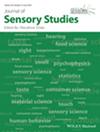Assessing consumer perception on underwear products: Visual and tactile evaluations
Abstract
Underwear is an intimate apparel with skin contact that impacts wearer's sensory experience. The visual and tactile properties of an underwear play critical roles in consumers' comfort and style considerations. This study concentrated on analyzing consumer perceptual preferences for underwear through surveys of bipolar word-pairs describing the visual and tactile properties of underwear. A questionnaire on the word pairs was designed using semantic differential scales, and 60 selected participants were surveyed under five test modes, including visual observations and tactile explorations (such as touching, pressing, and grasping). Clustering analysis was utilized to categorize the word-pairs into four clusters—“appearance,” “hand,” “style,” and “quality”—representing vital aspects of consumer concerns about underwear. The significance of the clusters and the test modes in assessing perceived underwear values was scrutinized, and the models to predict underwear's perceived values were established through multivariate regression analysis. It was found that consumers are likely to prioritize the “appearance” and “style” clusters over the “hand” and “quality” clusters, and the visual and grasping tests over the other tactile tests. The predictive models demonstrate high reliability in estimating the perceived values of underwear.
Practical Applications
The study findings highlight that, in assessing underwear products, consumers give greater importance to “appearance” and “style” than to “hand” and “quality.” In addition, the visual and grasping tests prove more effective than the other three methods (i.e., palm touching, fingertip touching, and fingertip pressing). These insights are valuable for underwear designers aiming to create marketable products. Moreover, the predictive models developed in the study exhibit high reliability, offering a valuable guide for consumer purchasing decisions. This is particularly pertinent in online shopping scenarios where the physical sensing of visual and tactile features of underwear is not possible.

 求助内容:
求助内容: 应助结果提醒方式:
应助结果提醒方式:


